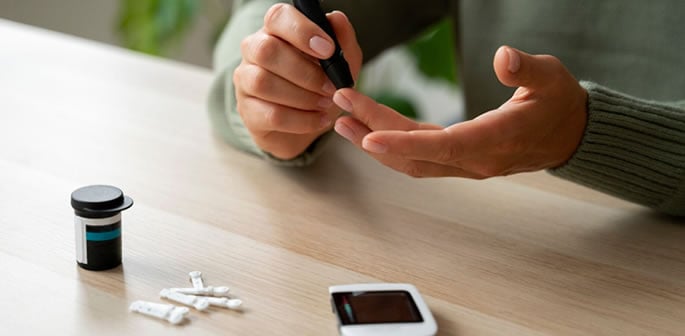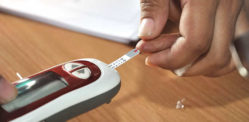"they start telling me 'you should try this'."
Diabetes affects millions globally, but for British South Asians, the conditions carry a weight far heavier than its physiological implications.
Within some communities, it is shrouded in silence.
For those living with diabetes, being subjected to negative behaviours, stereotypes or unsolicited advice can lead to devastating consequences: isolation, delayed treatment, and a profound, often unaddressed, impact on mental well-being.
This creates an unspoken affliction that thrives in the shadows of vibrant family gatherings, community events, and even within the supposed sanctity of the home.
We look at diabetes-related stigma within British Asian communities.
Keeping It A Secret
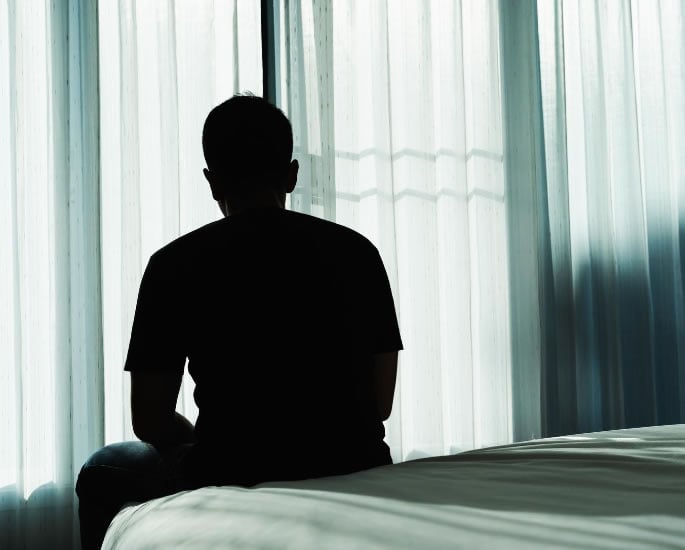
In South Asian cultures, honour and reputation are paramount.
A health condition like diabetes can be seen as a flaw, a mark of imperfection that threatens this delicate social fabric.
Consequently, a diagnosis is often met not with a plan for management, but with a pact of silence.
Research by Diabetes UK found that 74% of people from ethnic minority backgrounds have hidden their diabetes diagnosis from friends and family for fear of being stigmatised.
This secrecy is particularly pronounced when it comes to marriage prospects, where a diabetes diagnosis can be viewed as a “defect”, diminishing a person’s eligibility and bringing potential shame upon the family.
This culture of concealment creates an immense psychological burden. The fear of being discovered leads to constant anxiety.
Injecting insulin, a visible and undeniable marker of the condition, is especially stigmatised.
A study from the University of Birmingham found that for some people from Indian, Pakistani and Bangladeshi backgrounds, diabetes and insulin were viewed as culturally unacceptable.
This makes some patients reluctant to start insulin therapy or even admit to family and friends that they have the condition.
Shabana*, who has type 1 diabetes, has faced judgment from relatives and it has made her reluctant to tell others about her condition.
She said: “If I’m having a hypo (hypoglycaemia) and eating a chocolate bar, I’ll sometimes hear the comment ‘wasn’t it because you ate too many sweets that you got diabetes?'”
This kind of judgment, even when born from misunderstanding, forces individuals deeper into hiding.
The resulting isolation is profound, cutting people off from familial support systems at the very moment they need them most and erecting a formidable barrier to effective, open management of their health.
Food, Family and Unsolicited Advice
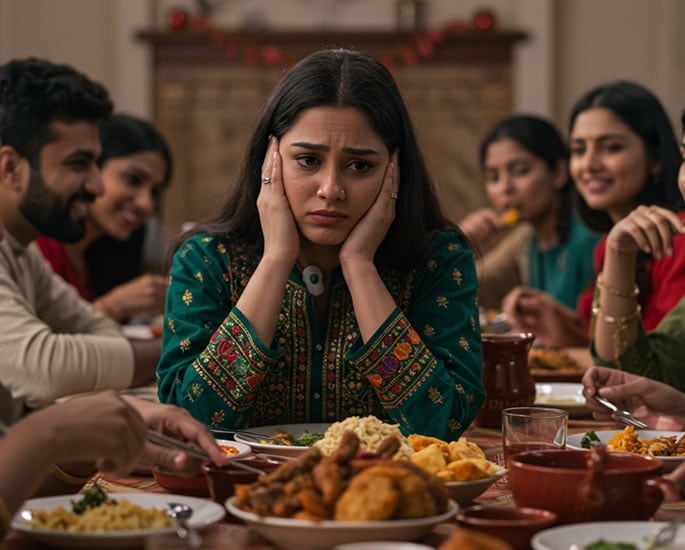
Food in South Asian culture is a language of love, hospitality, and celebration.
From the sweet mithai shared during festivals to the sugary, milky tea offered to every guest, food is the cornerstone of social interaction.
Refusing these offerings can be interpreted as a sign of disrespect, a rejection of the host’s warmth and generosity.
For a British Asian with diabetes, this places them in a constant state of negotiation and conflict. Every wedding, birthday party, and religious festival becomes a minefield of dietary challenges and social pressure.
A staggering 97% of people from South Asian, Black African, and Black Caribbean communities in the UK have experienced some form of diabetes-related stigma, much of which is related to food.
This often manifests as well-intentioned but relentless unsolicited advice from older generations who become the self-appointed “diabetes expert”.
They suggest unproven “cures” and folk remedies, questioning the efficacy of prescribed medication.
Sharing his frustration, Ishaan* said: “People in the wider community, like my friend’s mother or an auntie, they start telling me ‘you should try this’ or ‘we have seen people trying this remedy and they cured themselves’.”
Diabetes UK research also found that 75% of people had received comments from friends or family about using food substitutions, with suggestions that it made their cooking “inauthentic”.
These “sweet” gestures of concern, while stemming from a place of care, can be incredibly demoralising, undermining a person’s confidence in their management plan and reinforcing the feeling of being judged and controlled.
Cultural Pressures & Misconceptions
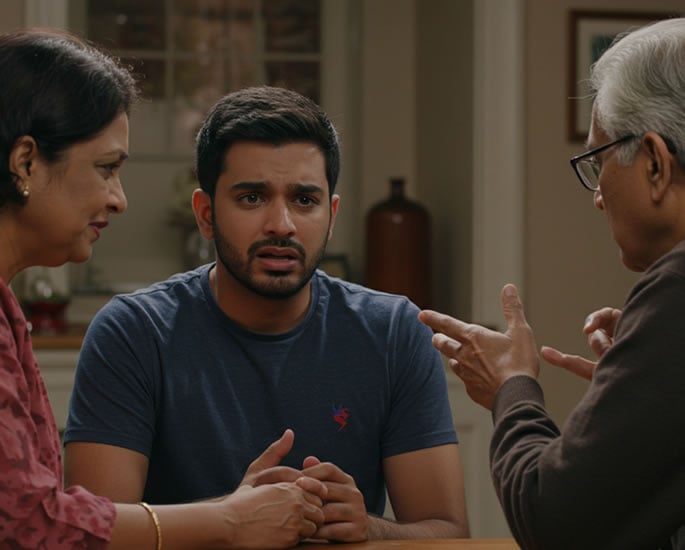
The stigma surrounding diabetes is deeply rooted in a cultural narrative that often oversimplifies its causes.
There is a pervasive and damaging misconception that diabetes, particularly Type 2, is a self-inflicted condition resulting solely from a poor diet and lack of exercise.
This simplistic view completely ignores the complex interplay of genetics, biology, and environmental factors, with research showing that people of South Asian descent are genetically at risk of Type 2.
This narrative of personal responsibility fuels a culture of blame and shame, making it incredibly difficult for individuals to speak openly about their condition without feeling like a failure.
These pressures are often magnified by traditional gender roles.
South Asian women may feel that a diabetes diagnosis reflects poorly on their ability to care for their family.
They may also face more restrictions on participating in outdoor physical activities, a key component of diabetes management, due to cultural norms or safety concerns.
Furthermore, the cultural landscape is often populated with a strong belief in traditional or herbal remedies.
Families may push for these alternatives over ‘Western’ medicine, fearing the toxicity of prescribed drugs or believing traditional methods are more “natural”.
While some remedies may offer complementary benefits, relying on them exclusively at the expense of proven medical treatments can lead to a dangerous delay in care and the progression of serious health complications, such as heart and kidney disease.
The Healthcare System

For some British Asian people, the healthcare system can become another source of stigma and misunderstanding.
Communication barriers extend beyond language; they are rooted in a lack of cultural competency.
Healthcare professionals may offer generic advice that fails to consider the cultural significance of food, the influence of family dynamics, or the patient’s own health beliefs.
For instance, being told to simply “cut out rice” without offering culturally relevant alternatives is not only unhelpful but can also make patients feel that their lifestyle is being judged.
Ronit* explained that when he goes to appointments, the GP “doesn’t really consider the cultural aspects. The advice always seems to be generic, as if the exact same thing is said to all diabetes patients”.
This can have a chilling effect on patient-doctor relationships.
Riya* admitted: “Sometimes, I avoid going to appointments. I just feel so bad when I’m there that it’s better for me not to go.”
This avoidance can create a dangerous cycle where shame prevents individuals from seeking the very medical care that is essential for their long-term health, turning a potential ally into an institution to be feared and avoided.
Diabetes stigma within British Asian communities runs deep, wrapped in silence, shame, and misunderstanding.
It’s a quiet epidemic fuelled by cultural pressure and the constant fear of being judged, adding an emotional weight to an already demanding condition.
The stories and statistics reveal more than just numbers; they show people carrying invisible burdens, from hiding their diagnosis to enduring awkward glances at family gatherings or feeling misunderstood by the healthcare system.
These experiences show how health, culture, and identity collide, turning what should be a personal health journey into a shared, but silent, struggle.
For some British Asians living with diabetes, the hardest part isn’t the illness itself; it’s the quiet, the stigma, and the sense of being alone when they most need support and understanding.




















































